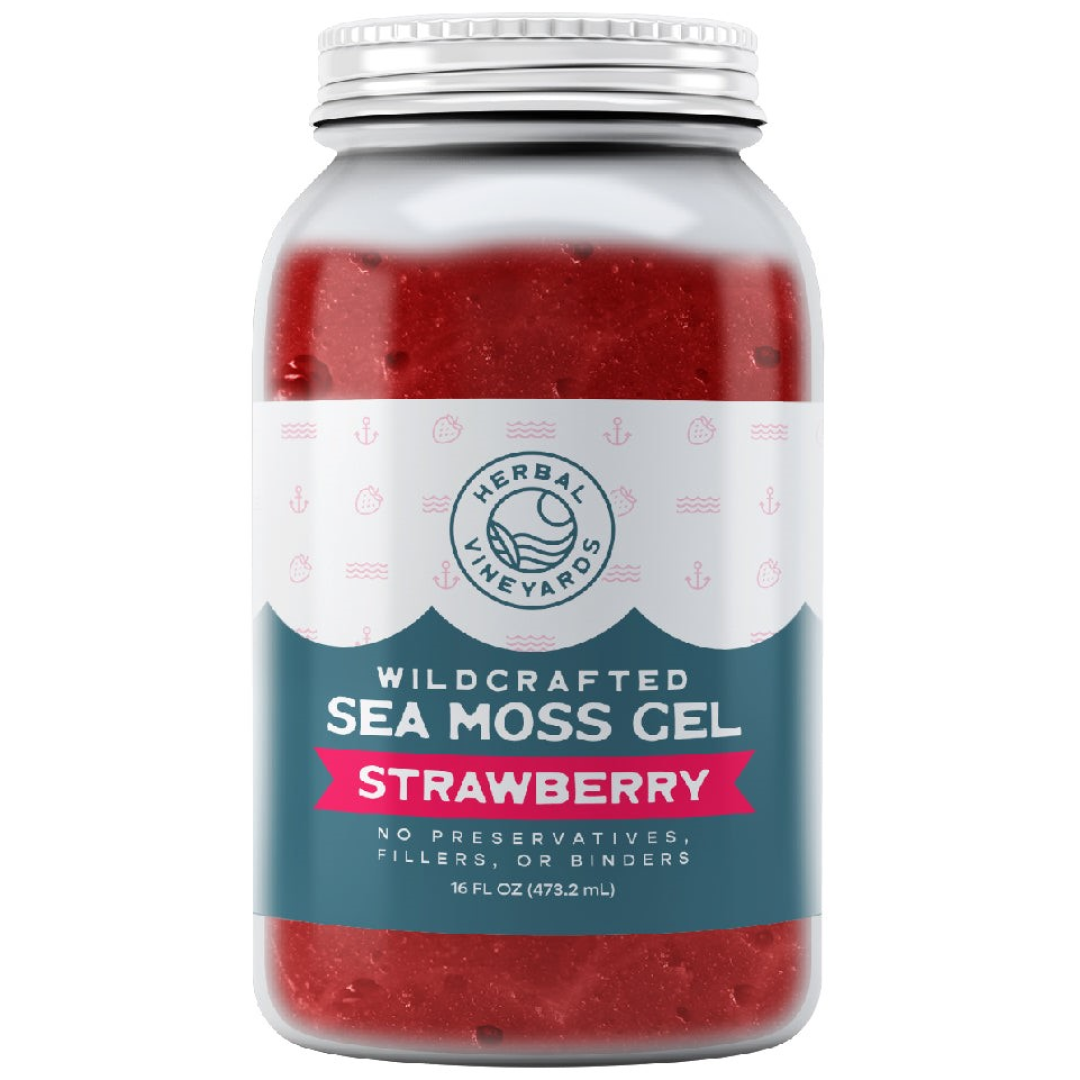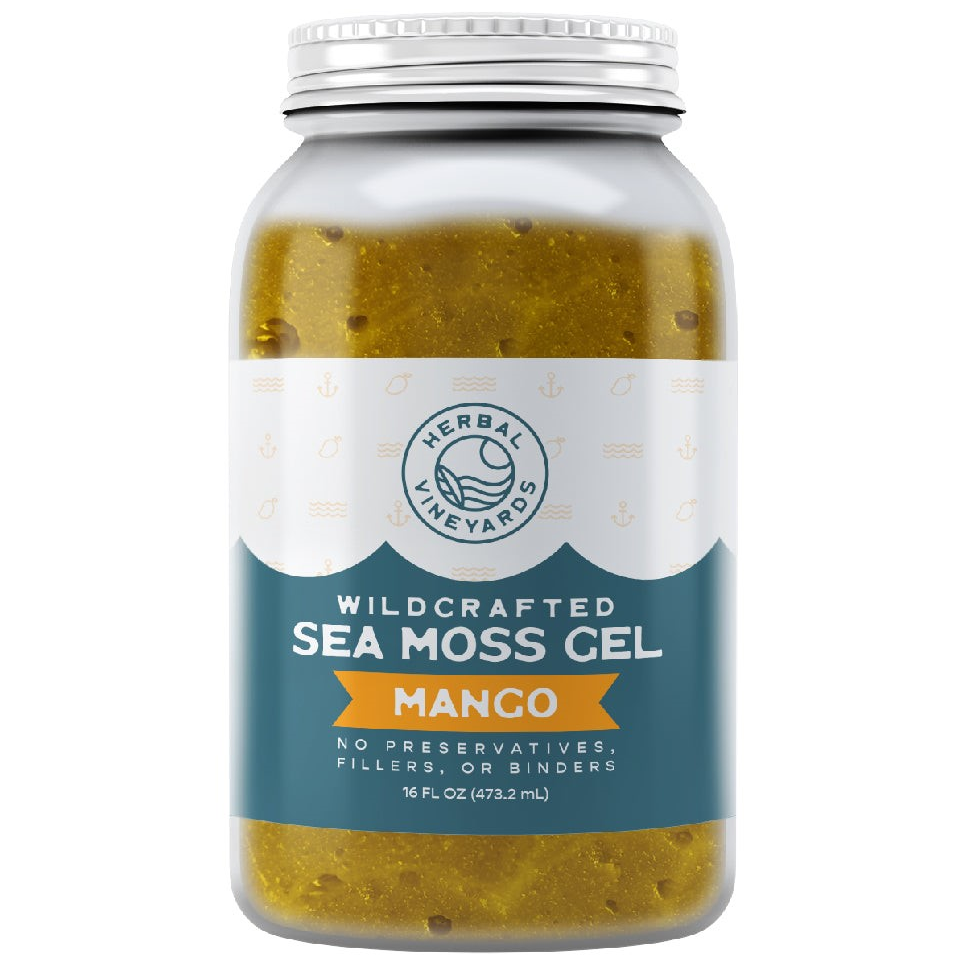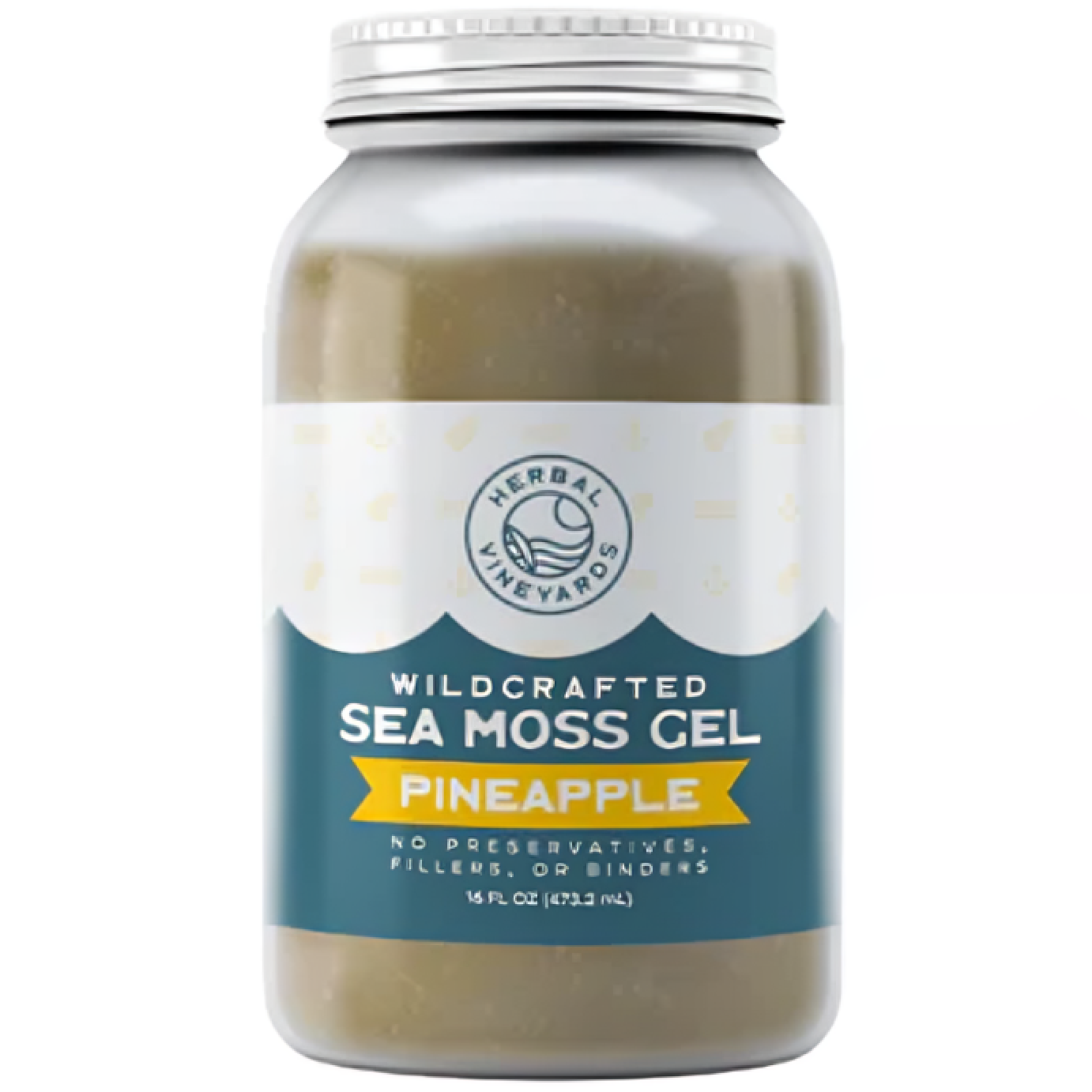Breaking Down the Nutrient Profile of Sea Moss – Vitamin by Vitamin
Nutrients are materials that our body utilizes to function optimally. They can be divided into seven main groups: carbohydrates, proteins, fats, minerals, vitamins, dietary fibers, and water.
Vitamins are natural compounds produced by plants or animals. Our body requires 13 vital vitamins (A, B, C, D, E, and K, including eight B complex vitamins). Vitamins and minerals work together and are essential for various functions. They assist in developing bones and cells, repairing wounds, enhancing the immune system, transforming food into energy, and much more.
We all know that sea moss is an abundant source of nutrients, and it contains an unexpected and rich amount of vitamins. Indeed, it contains all vital vitamins, 12 of which are in substantial quantities and others in minor amounts.
Today, we’ll discuss the health advantages of vitamins, and how consuming sea moss can help you attain all of them by adding a monitored amount of the seaweed to your dietary regime.
Quantities of Vitamins in Sea Moss Vitamins
According to the Food Data Base of the US Department of Agriculture, sea moss contains the following quantities of vitamins (per 10 g serving):
-
Vitamin A: 11.8 IU
-
Beta Carotene (converted into vitamin A by the body): 7.1 µg
-
Thiamin (Vitamin B1): 0.002 mg
-
Riboflavin (Vitamin B2): 0.047 mg
-
Niacin (Vitamin B3): 0.059 mg
-
Pantothenic acid (Vitamin B5): 0.018 mg
-
Vitamin B6: 0.007 mg
-
Vitamin B9 (folate): 18.2 µg
-
Vitamin C (ascorbic acid): 0.3 mg
-
Vitamin E: 0.087 mg
-
Vitamin K: 0.5 µg
-
Choline (similar to vitamin B complex): 1.29 mg
Sea moss also contains trace amounts of vitamin B12 (cobalamin), vitamin D, and retinol (a form of vitamin A).
Health Benefits of Vitamins
Here’s how consuming sea moss – and the vitamins it contains – can help you achieve and maintain optimal health:
Vitamin A
Vitamin A is essential for aiding vision and supports the immune system. It is also helpful in managing various skin conditions and is essential for cell development, reproduction, and fetal growth. A lack of vitamin A can cause several health issues, such as night blindness and a higher susceptibility to infections.
Beta Carotene
Beta-carotene, a precursor to Vitamin A, provides various health advantages, such as better vision and eye health, boosted skin health, and possible defense against heart diseases. It also serves as a strong antioxidant, safeguarding cells against harm from free radicals.
Thiamin (Vitamin B1)
Vitamin B1 plays a crucial role in converting food into energy, supporting nervous system function, and contributing to overall health. It's essential for the metabolism of carbohydrates and helps the body produce energy. Thiamine also plays a role in muscle contraction and nerve signal conduction.
Riboflavin (Vitamin B2)
Vitamin B2 is essential for numerous bodily functions, such as energy production, supporting healthy skin and eyes, and possibly helping in migraine prevention. It functions as an antioxidant, safeguarding cells from harm, and contributes to the metabolism of other B vitamins.
Niacin (Vitamin B3)
Vitamin B3 is crucial for supporting the health of your heart, blood vessels, and metabolic functions. It can also be combined with other drugs to lower bad cholesterol and fats (like LDL, triglycerides) while raising good cholesterol (HDL) levels in your bloodstream.
Pantothenic acid (Vitamin B5)
Vitamin B5 is essential for energy generation, hormone production, and keeping skin, hair, and nails healthy. Moreover, Vitamin B5 contributes to brain function, assists in digestion, and could also aid in managing cholesterol levels.
Vitamin B6
Vitamin B6 is essential for brain growth, nerve operation, and immune system health, and could assist with energy levels, and mood management.
Vitamin B9 (folate)
Vitamin B9 is essential for cell growth and division, the production of red blood cells, and DNA synthesis. It is especially vital during pregnancy to minimize the chance of neural tube defects in the fetus that is developing. A lack of folate may cause anemia and various other health problems.
Vitamin C (ascorbic acid)
Vitamin C provides numerous health advantages owing to its antioxidant characteristics and involvement in different bodily processes. It plays a crucial role in tissue growth, development, and repair, while also enhancing immunity, promoting heart health, and facilitating iron absorption.
Vitamin E
Vitamin E supports the health of skin and eyes and boosts the body's natural defenses against disease and infections.
Vitamin K
Vitamin K is essential for blood coagulation, maintaining bone strength, and possibly supporting heart health. It is crucial for the healing of wounds by aiding in blood clotting, and it plays a role in bone metabolism, possibly lowering the risk of fractures.
Choline (similar to vitamin B complex)
Choline, though not a true vitamin B, has numerous similarities and advantages to the B vitamins, especially its role importance for brain health and the functioning of the nervous system. Choline also plays a vital role in memory, cognitive abilities, and overall brain growth, and a lack of it can result in multiple health problems.
If you want to include the best 100% wildcrafted sea moss, shop online at Herbal Vineyards and achieve optimal health. However, always consult a healthcare professional before including any supplement into your diet.







